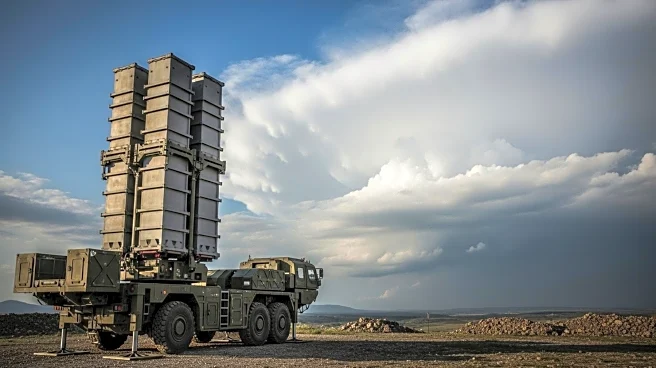What's Happening?
The United States has approved a $705 million sale of High Mobility Artillery Rocket Systems (HIMARS) to Australia, a key ally in the Pacific region. This decision comes amid increasing tensions between China and Western nations. The sale includes 48 HIMARS systems, resupply vehicles, and other equipment, enhancing Australia's defense capabilities. This move is part of the U.S. strategy to strengthen its alliances in the Asia-Pacific region, particularly in light of China's expanding military activities.
Why It's Important?
The sale of HIMARS to Australia underscores the strategic importance of the U.S.-Australia alliance in maintaining regional stability. As China continues to assert its influence in the Asia-Pacific, the U.S. is bolstering its partnerships to counter potential threats. The HIMARS systems, known for their precision and versatility, will enhance Australia's military capabilities, contributing to the broader security framework in the region. This development also reflects the U.S.'s commitment to supporting its allies in the face of geopolitical challenges.
What's Next?
Australia's acquisition of HIMARS is likely to prompt reactions from China, which may view the sale as a threat to its regional ambitions. The U.S. and Australia may continue to strengthen their defense cooperation, potentially involving joint military exercises and further arms sales. This could lead to increased military presence and readiness in the region, influencing the strategic calculations of other Asia-Pacific nations.
Beyond the Headlines
The sale highlights the ongoing geopolitical tensions in the Asia-Pacific and the complex dynamics of international arms sales. It raises questions about the balance of power in the region and the potential for an arms race as countries seek to enhance their military capabilities.











